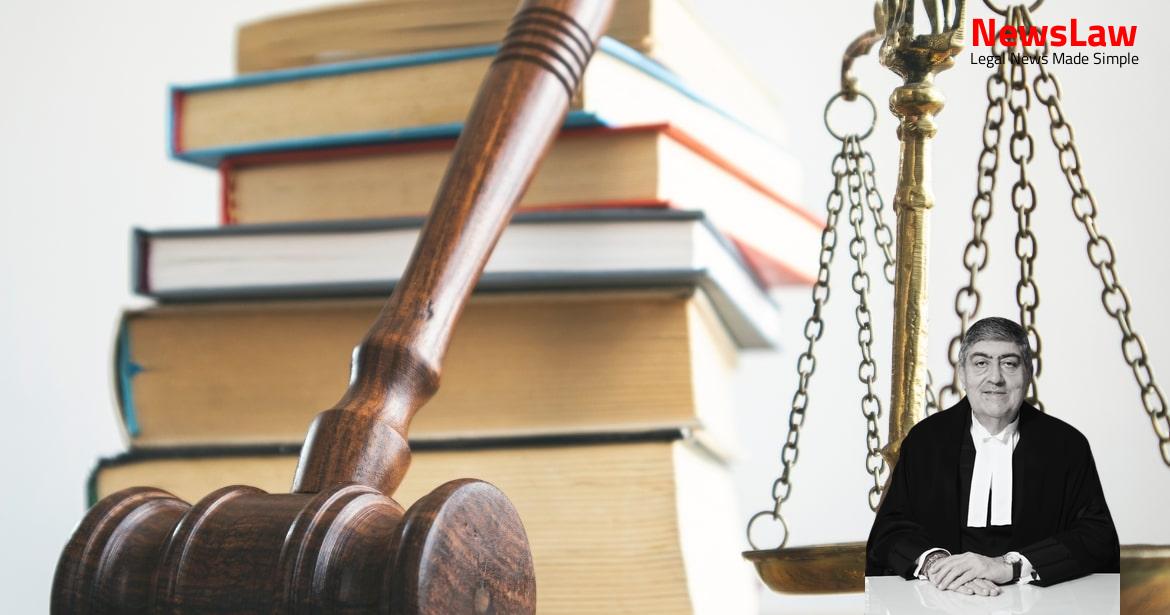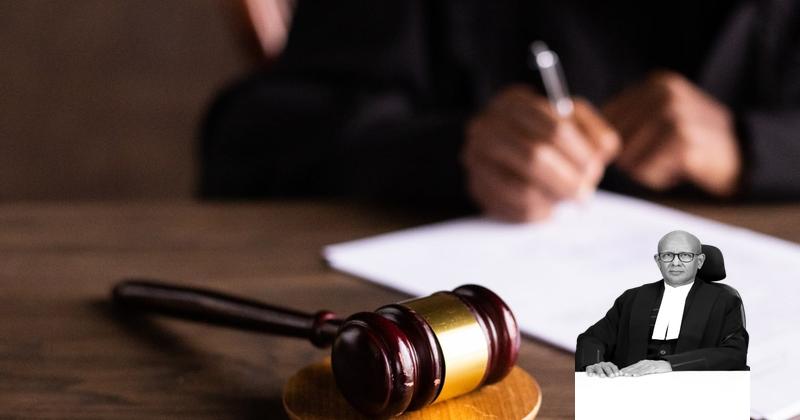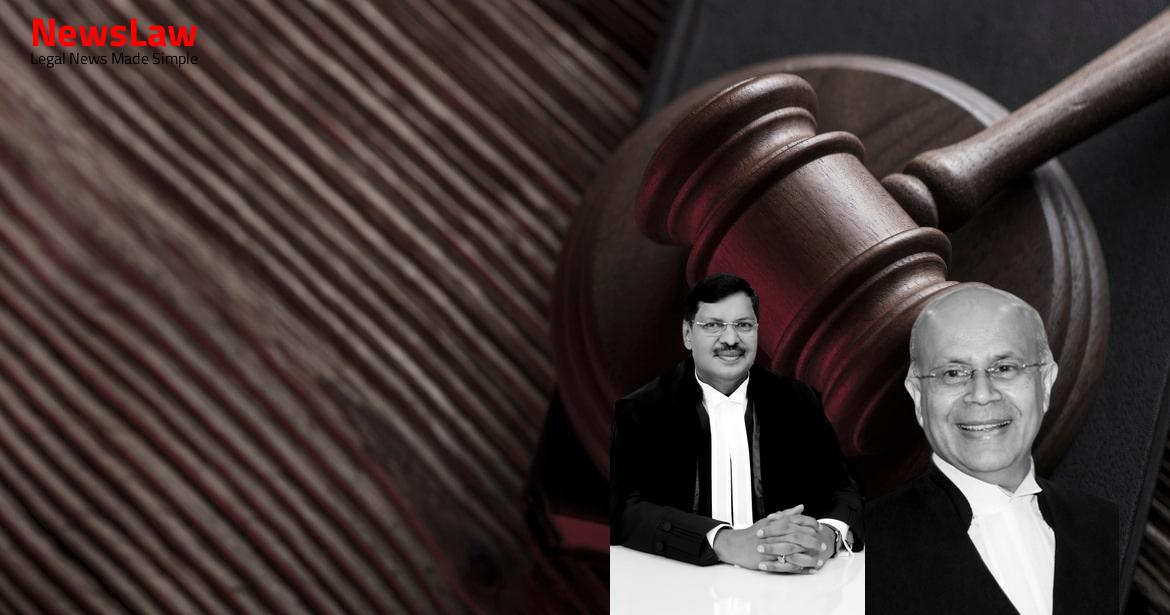This case summary delves into the court’s in-depth legal analysis regarding the interpretation of retirement age in government service. The focus is on understanding the complexities of administrative law and employment regulations, shedding light on crucial factors influencing retirement criteria. It provides valuable insights into how courts interpret and apply rules governing pensionable service and superannuation in the context of government employment.
Facts
- The Appellant was appointed as Calligraphist-cum-Assistant of the Bihar School Examination Board at about 15½ years of age.
- There was no minimum age prescribed for appointment to the post of Calligraphist-cum-Assistant when the Appellant was appointed in May 1970.
- Minimum age of entry into pensionable service was 16 years at the time of the Appellant’s appointment.
- A Government circular in January 1998 set the minimum age for appointment to an inferior service in Bihar at 18 years, which was prospective and applied to appointments made after its issuance.
- Service period before attaining the age of 16 years would not count towards pension as per the circular.
- Resolution of a Board of Bihar Schools Examination Committee mentioning a meeting on January 15, 2004, with specific participants.
Also Read: Analysis of Evidence in an Attempted Murder Case
Arguments
- The circular of 1998 cannot be applied to appointments made before its issuance
- There was no minimum age for appointment to government service at the time of the appointments in question
- The interpretation of Rule 73 by the Full Bench in the Ragjawa Narayan Mishra case is considered erroneous
- There is no rule specifying the length of service as a criteria for superannuation
Also Read: Ownership Dispute in Motor Vehicle Insurance Case
Analysis
- The age of retirement is governed by Rule 73 of the Bihar Service Code, not by the qualifying age for pensionable service.
- Length of service is not a criterion for retirement under Rule 73.
- Resolution to consider employees appointed before 18 years as attaining that age on the date of appointment was beneficial for pensionary benefits.
- No legal effect for circular or resolution contrary to Rule 73 of the Bihar Service Code for retirement age.
- Employees cannot be retired before reaching 58 or 60 years as per Rule 73.
- Appointment of employees below 18 years of age does not affect their right to retirement as per Rule 73.
- Judicial discipline requires following Full Bench decisions until overruled.
- No enforceability of contracts against minors mentioned in the context of service employment.
- Resolution wording and intent did not mandate retirement before reaching actual retirement age.
- The resolution expressly stated that the date of birth of employees appointed before attaining the age of 18 years would be deemed to be the date on which the employee would have been born if they were to complete 18 years of age on the date of appointment.
- Rule 73 of the Bihar Service Code states that the date of compulsory retirement for a Government Servant is the date on which they attain the age of 58 years. They may be retained in service after this date with the sanction of the State Government on public grounds, which must be recorded in writing.
- On January 15, 2004, the Bihar School Examination Board resolved to treat the age of entry into service of those employees who were below 18 years at the time of joining service as 18 years at the time of their appointment.
- The State of Bihar has provisions for appointing dependent children of police force personnel below 18 years of age on compassionate grounds after the death of the personnel while on duty.
- An adolescent, though a minor, can be appointed in government employment with fixed wages.
- In the absence of a specific rule, a government servant cannot be superannuated based on completion of 40 years of service.
- The Bihar Service Code does not specify a length of service as a criteria for retirement.
- The appointment of minors in the service of the state as ‘Bal-Arakshi’ is allowed, with wages equivalent to the minimum of the scale of pay of the post.
- The Full Bench judgment in Ragjawa Narayan Mishra clarified that the superannuation age prescribed in Rule 73 of the Bihar Service Code applies for retirement purposes.
- Employment of children below 14 years of age is prohibited by the Child Labour (Prohibition and Regulation) Act, 1986.
- The Full Bench ruling emphasized that retirement age as per Rule 73 should be adhered to, and employees cannot be made to retire before the prescribed age.
- The interpretation of law by the Division Bench of the High Court of Jharkhand in Ganesh Ram was deemed correct.
- The Nagaland Retirement from Public Employment Act, 1991 was upheld in terms of retirement criteria.
- Different minimum rates of wages can be fixed for ‘adults’, ‘adolescents’, ‘children’, and ‘apprentices’ under the Minimum Wages Act, 1948.
- Decision to retire the Appellant before he turned 60 cannot be upheld
- Appellant’s actual date of birth in service records is the determining factor
- Retiring before 60 goes against recorded information
Also Read: Land Sale Dispute Legal Analysis
Decision
- The appeal should be allowed and the judgment and order of the Division Bench and the Single Bench be set aside.
- The Appellant is entitled to a declaration that the Appellant was entitled to continue in service till 18 November 2014, being the date on which he completed 60 years of age as per his service records.
- The Appellant shall be entitled to all consequential benefits including arrears of pay, if any, pensionary benefits, etc.
Case Title: GOPAL PRASAD Vs. BIHAR SCHOOL EXAM. BOARD (2020 INSC 408)
Case Number: C.A. No.-008225-008225 / 2012



